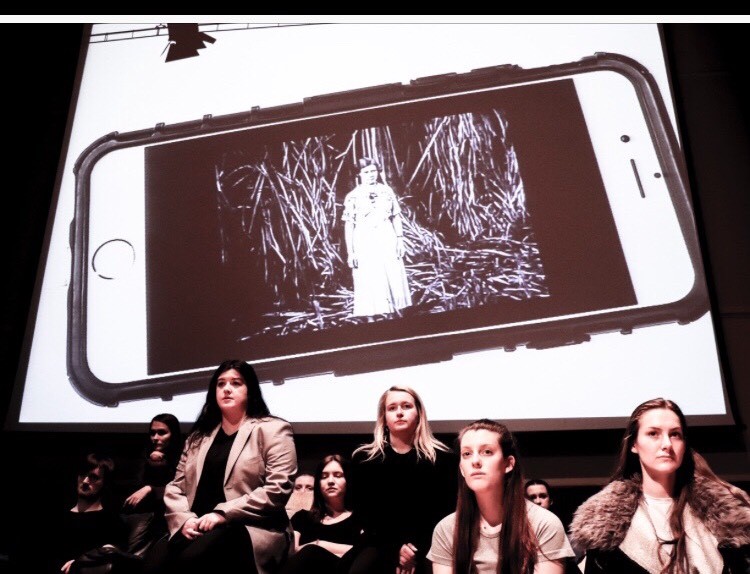
Truth be truth to th’end of reckn’ning was the final product of a 13-week rehearsal process in which we aimed to explore bearing testament to events we did not witness. This ‘Artist as Witness’ module was an ensemble project that allowed each of us to equally direct, choreograph, write and perform in this performance. We were not attempting to recreate what we saw, only to use the life we had lived as a proxy to empathy. It was intended to be a performance that was only to be witnessed through the emotions generated during our fieldwork, our understanding of how Auschwitz made us feel and respond to the world around us.
As someone who is interested in directing and creating performances around real people’s stories and historical events this module improved my skills greatly. It was interesting and challenging to me to create a sensitive performance of such a large-scale historical event, as I had never felt such an enormous responsibility to do justice to an event before. The horror of the Holocaust is not something that I can personally relate to, so trying to find the connection for myself throughout this module was difficult, however this did encourage me as a creator to push myself mentally and emotionally to find my place in the piece.
The rehearsal process for this performance involved a huge learning curve for me personally and creatively. Working as a large ensemble group, it was imperative for us to learn to trust each other, but this was not an easy task. Working with a large number of people inevitably meant that there were many different learning and personality styles that inevitably would clash if compromises and allowances were not made. However, looking back on this rehearsal period I believe that that dealing with conflict within the creative process was useful and positive if dealt with and managed in the right way. Ensembles do not need to fit into any category or certain way or working and I believe that sometimes our differences helped us achieve what we wanted to achieve. I had never worked collaboratively with such a large group before and as a natural leader who likes to take charge of their performances this was often overwhelming for me as I felt my voice was lost. But I believe that this experience taught me a lot about working as a group, it is important not to force people to do things your way and allow everyone an equal creative share, but at the same time to create a collective and shared vision of the end product.
Overall, this performance helped me discover how to place yourself in the context of a cultural event without specifically trying to recreate or imitate it. This creative process was a journey that improved my understanding of the different motivations and life experiences of people and the impact on their ways of working and ability to form relationships.